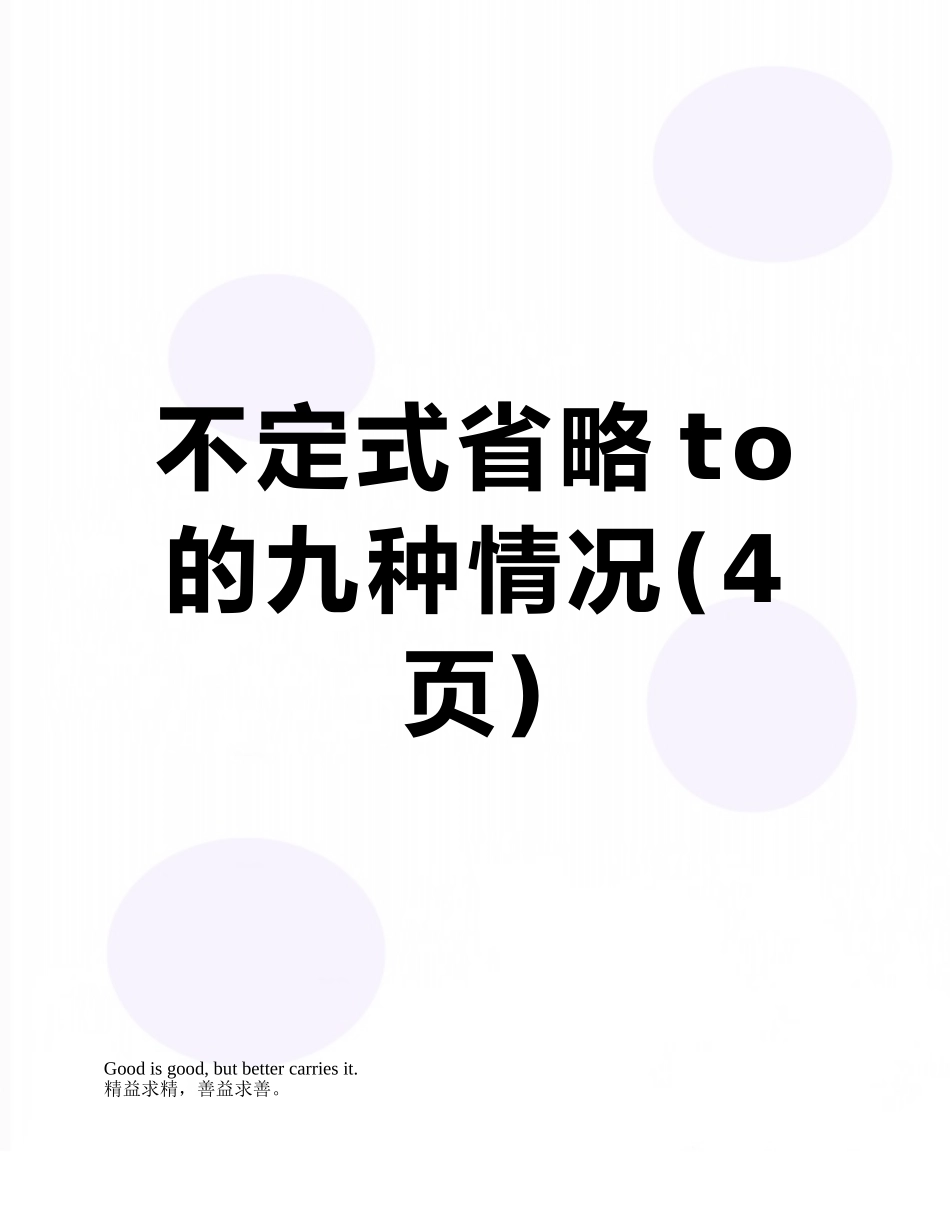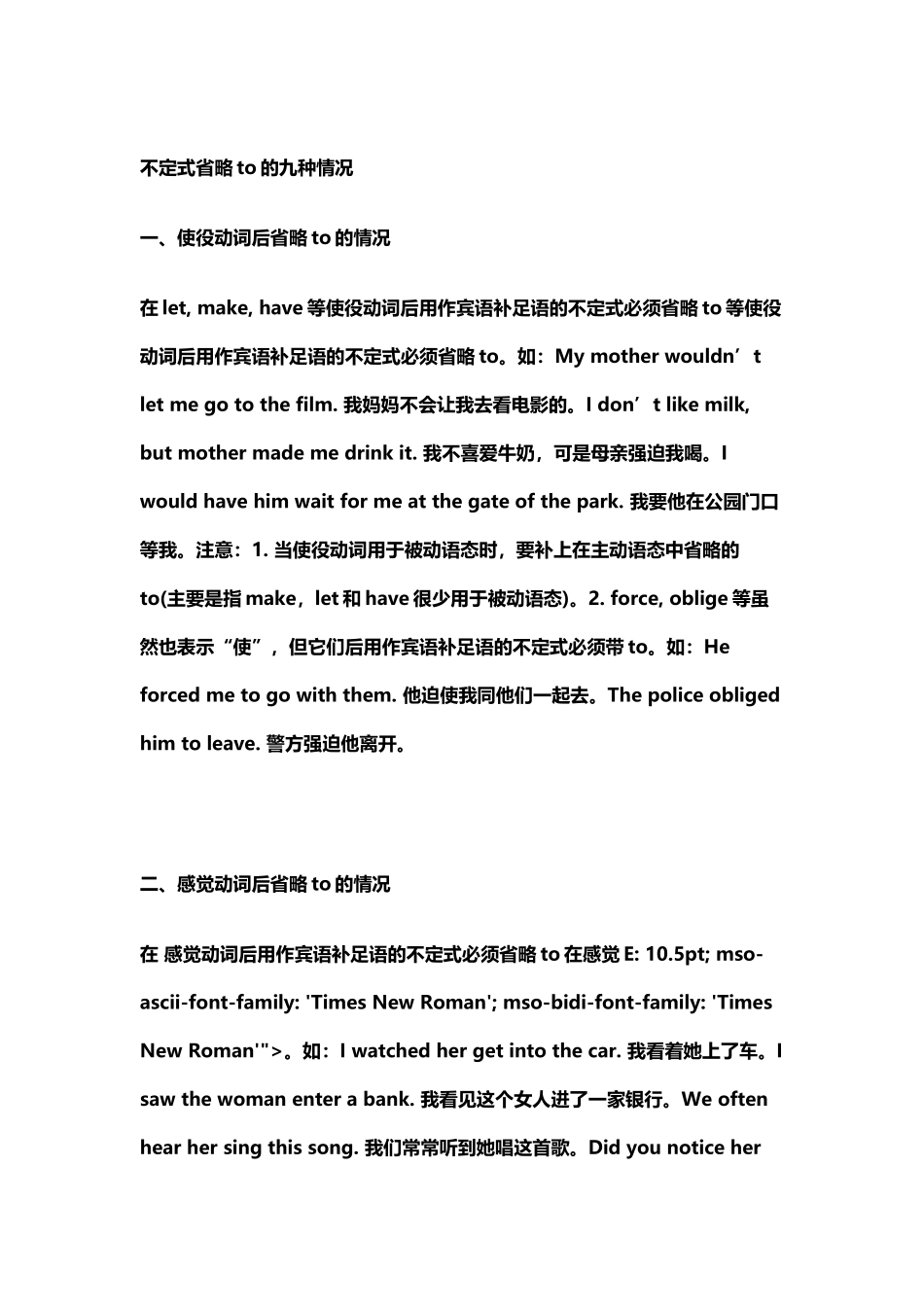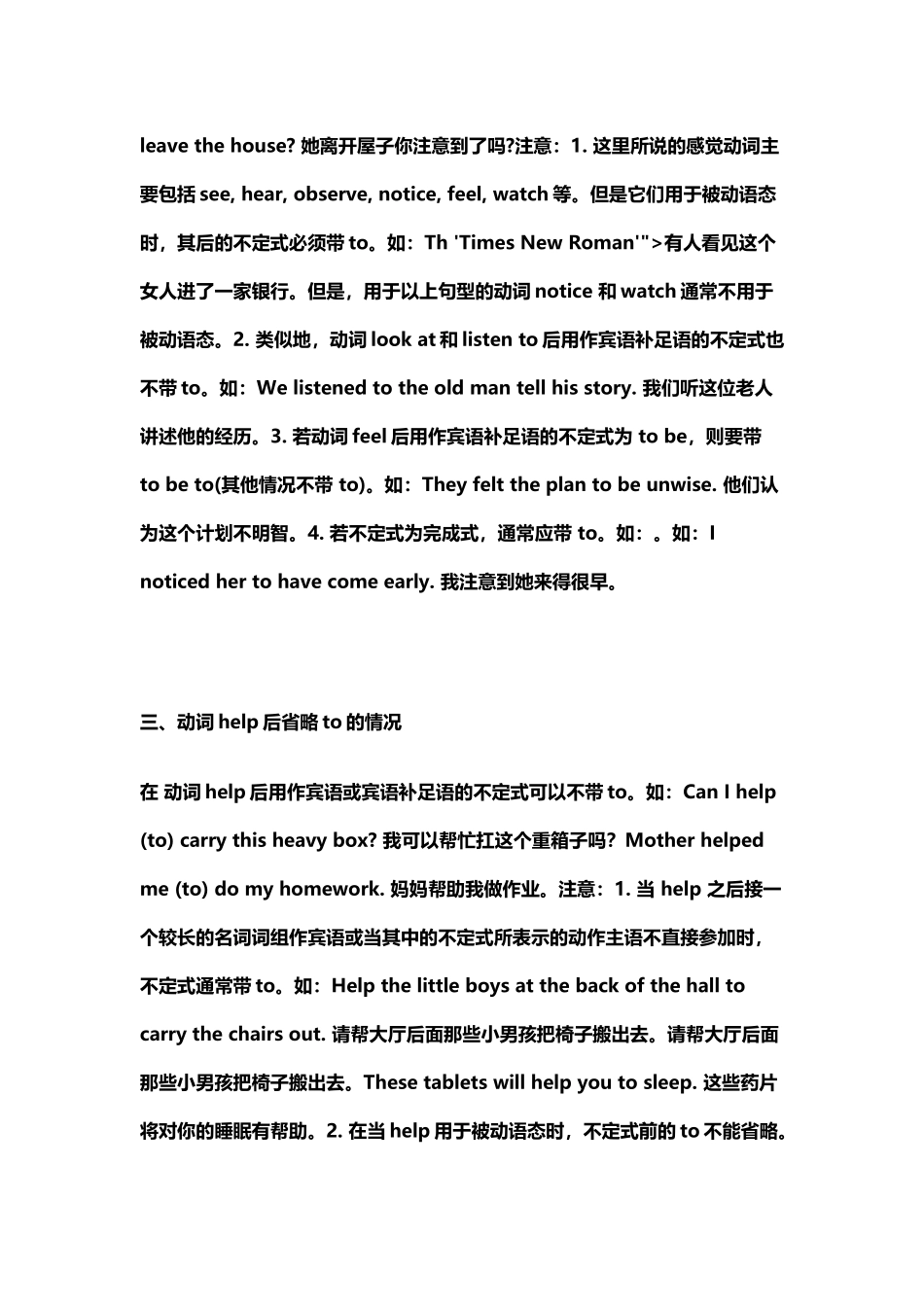不定式省略 to的九种情况(4页)Good is good, but better carries it.精益求精,善益求善。不定式省略 to 的九种情况一、使役动词后省略 to 的情况在 let, make, have 等使役动词后用作宾语补足语的不定式必须省略 to 等使役动词后用作宾语补足语的不定式必须省略 to。如:My mother wouldn’t let me go to the film. 我妈妈不会让我去看电影的。I don’t like milk, but mother made me drink it. 我不喜爱牛奶,可是母亲强迫我喝。I would have him wait for me at the gate of the park. 我要他在公园门口等我。注意:1. 当使役动词用于被动语态时,要补上在主动语态中省略的to(主要是指 make,let 和 have 很少用于被动语态)。2. force, oblige 等虽然也表示“使”,但它们后用作宾语补足语的不定式必须带 to。如:He forced me to go with them. 他迫使我同他们一起去。The police obliged him to leave. 警方强迫他离开。 二、感觉动词后省略 to 的情况在 感觉动词后用作宾语补足语的不定式必须省略 to 在感觉 E: 10.5pt; mso-ascii-font-family: 'Times New Roman'; mso-bidi-font-family: 'Times New Roman'">。如:I watched her get into the car. 我看着她上了车。I saw the woman enter a bank. 我看见这个女人进了一家银行。We often hear her sing this song. 我们常常听到她唱这首歌。Did you notice her leave the house? 她离开屋子你注意到了吗?注意:1. 这里所说的感觉动词主要包括 see, hear, observe, notice, feel, watch 等。但是它们用于被动语态时,其后的不定式必须带 to。如:Th 'Times New Roman'">有人看见这个女人进了一家银行。但是,用于以上句型的动词 notice 和 watch 通常不用于被动语态。2. 类似地,动词 look at 和 listen to 后用作宾语补足语的不定式也不带 to。如:We listened to the old man tell his story. 我们听这位老人讲述他的经历。3. 若动词 feel 后用作宾语补足语的不定式为 to be,则要带 to be to(其他情况不带 to)。如:They felt the plan to be unwise. 他们认为这个计划不明智。4. 若不定式为完成式,通常应带 to。如:。如:I noticed her to have come early. 我注意到她来得很早。 三、动词 hel...


